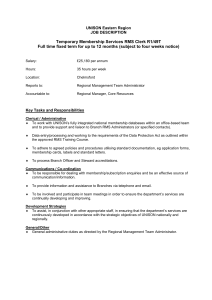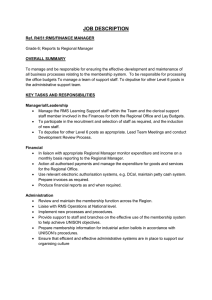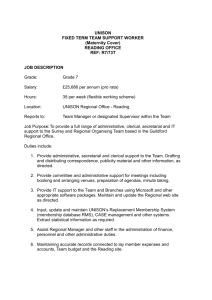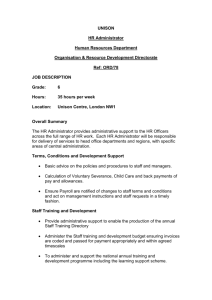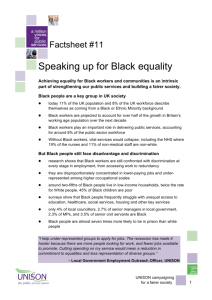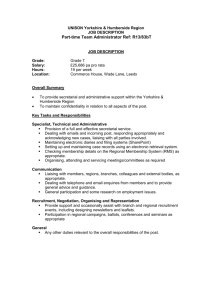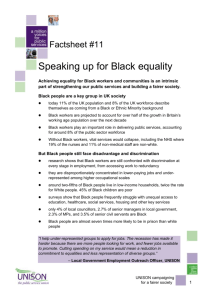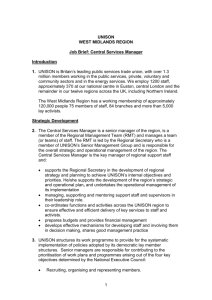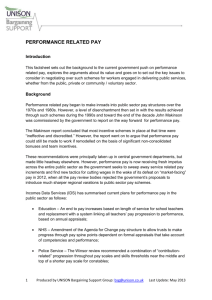Learn @ Coleg Gwent
advertisement
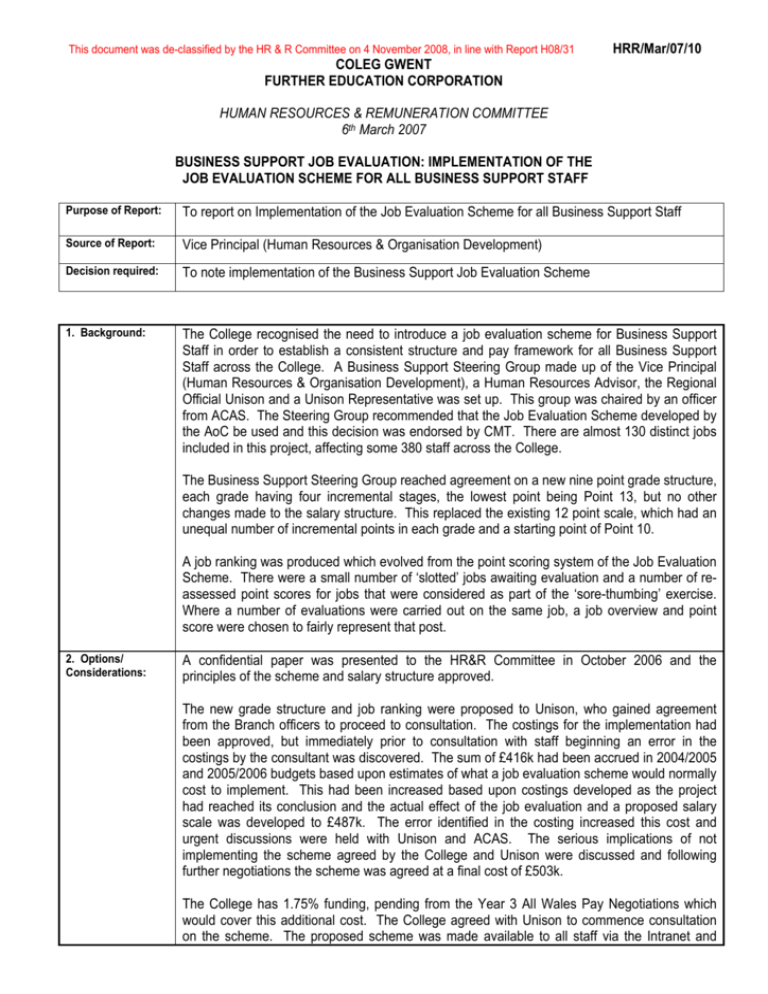
This document was de-classified by the HR & R Committee on 4 November 2008, in line with Report H08/31 COLEG GWENT FURTHER EDUCATION CORPORATION HRR/Mar/07/10 HUMAN RESOURCES & REMUNERATION COMMITTEE 6th March 2007 BUSINESS SUPPORT JOB EVALUATION: IMPLEMENTATION OF THE JOB EVALUATION SCHEME FOR ALL BUSINESS SUPPORT STAFF Purpose of Report: To report on Implementation of the Job Evaluation Scheme for all Business Support Staff Source of Report: Vice Principal (Human Resources & Organisation Development) Decision required: To note implementation of the Business Support Job Evaluation Scheme 1. Background: The College recognised the need to introduce a job evaluation scheme for Business Support Staff in order to establish a consistent structure and pay framework for all Business Support Staff across the College. A Business Support Steering Group made up of the Vice Principal (Human Resources & Organisation Development), a Human Resources Advisor, the Regional Official Unison and a Unison Representative was set up. This group was chaired by an officer from ACAS. The Steering Group recommended that the Job Evaluation Scheme developed by the AoC be used and this decision was endorsed by CMT. There are almost 130 distinct jobs included in this project, affecting some 380 staff across the College. The Business Support Steering Group reached agreement on a new nine point grade structure, each grade having four incremental stages, the lowest point being Point 13, but no other changes made to the salary structure. This replaced the existing 12 point scale, which had an unequal number of incremental points in each grade and a starting point of Point 10. A job ranking was produced which evolved from the point scoring system of the Job Evaluation Scheme. There were a small number of ‘slotted’ jobs awaiting evaluation and a number of reassessed point scores for jobs that were considered as part of the ‘sore-thumbing’ exercise. Where a number of evaluations were carried out on the same job, a job overview and point score were chosen to fairly represent that post. 2. Options/ Considerations: A confidential paper was presented to the HR&R Committee in October 2006 and the principles of the scheme and salary structure approved. The new grade structure and job ranking were proposed to Unison, who gained agreement from the Branch officers to proceed to consultation. The costings for the implementation had been approved, but immediately prior to consultation with staff beginning an error in the costings by the consultant was discovered. The sum of £416k had been accrued in 2004/2005 and 2005/2006 budgets based upon estimates of what a job evaluation scheme would normally cost to implement. This had been increased based upon costings developed as the project had reached its conclusion and the actual effect of the job evaluation and a proposed salary scale was developed to £487k. The error identified in the costing increased this cost and urgent discussions were held with Unison and ACAS. The serious implications of not implementing the scheme agreed by the College and Unison were discussed and following further negotiations the scheme was agreed at a final cost of £503k. The College has 1.75% funding, pending from the Year 3 All Wales Pay Negotiations which would cover this additional cost. The College agreed with Unison to commence consultation on the scheme. The proposed scheme was made available to all staff via the Intranet and HRR/Mar/07/10 Unison held a number of Campus presentations. A ballot was conducted by Unison Regional Office and an overwhelming 87% voted in favour of implementation. The changes in salaries as a result of job evaluation have been implemented in February pay. This document was de-classified by the HR & R Committee on 4 November 2008, in line with Report H08/31 The implementation programme has an appeal policy and procedure. Following confirmation of new grades and salaries, staff have the opportunity to appeal against any of the factors contained in their overview. These appeals are considered by the Business Support Steering Group. There were a relatively small number of posts, who are ‘protected’ for a period of five years, thereafter with consideration of a market supplement, who are expected to appeal but the process is available to everyone. The cost of living rise of 2.5% is being applied to all staff in FE as per the national agreement. All new jobs will be subject to job evaluation prior to a grade and salary being attached to them. 3. Conclusion/ Justification: 4. Implications of decision: The development and implementation of the Job Evaluation Scheme has been a complex and lengthy one. However, the conclusion of the implementation has brought the College consistency in roles, relativities and salary scales, removed any bias based upon gender and provided a framework within which new jobs can be fitted in an equitable way. The appeal process will allow us to review and address anomalies. The investment in the total cost of the implementation will improve recruitment and retention in certain groups of staff, where low pay has been given, either for lack of interest or increased turnover in these areas. Risk: The threat of equal pay and gender discrimination is reduced by implementing a Job Evaluation scheme. Financial: The cost of implementation exceeds the original estimates. Incremental costs will have to be budgeted as always but may be increased. HR/Equal Opportunities: This is a key strategic objective which will improve the Business Support Group status and position in the College and recognise their contribution to its success. J A Richards

